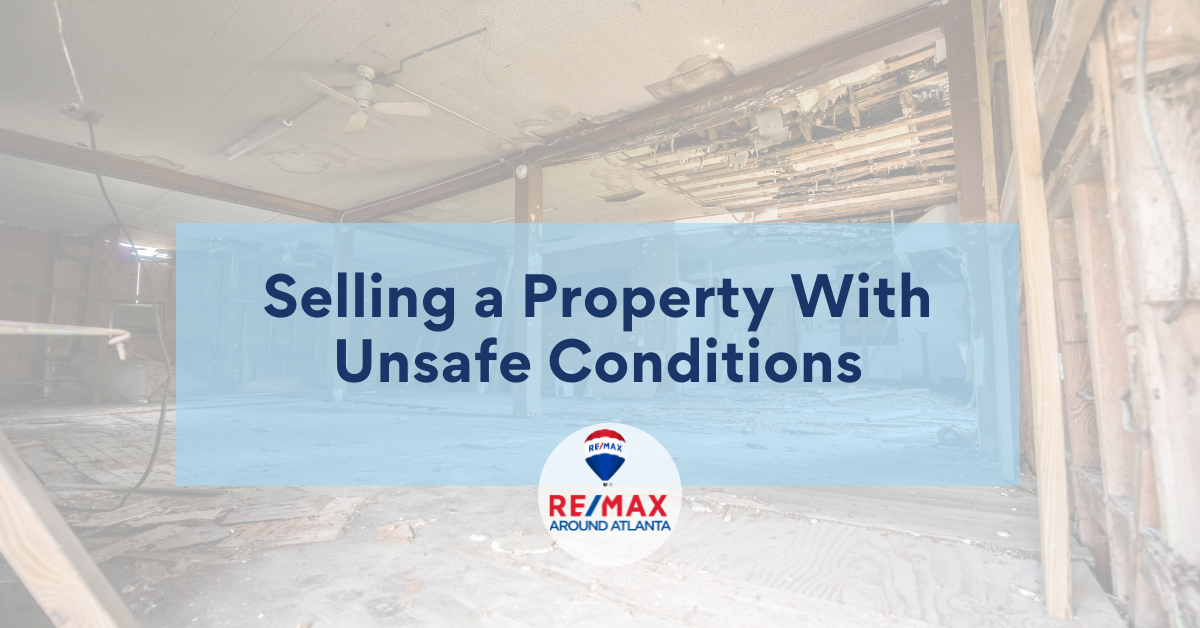|
The recent bank failures of Silicon Valley Bank in California and Signature Bank in New
York have raised questions regarding the safety of funds in trust accounts. Trust Account Funds Are Insured The Federal Deposit Insurance Corporation (FDIC) is an independent agency of the US federal government that provides deposit insurance to protect depositors in case a bank fails. Attorneys and realtors hold funds for others in trust accounts or fiduciary accounts, insured by the FDIC. As of March 2023, the standard insurance amount is $250,000 per depositor, per insured bank, for each account ownership category. Even though trust accounts often hold far more than the $250,000, the funds in trust accounts are treated as an individual’s funds, not the attorney’s or the realtor’s funds. That means that each person’s funds are insured up to $250,000. Although land or commercial transactions may have earnest money deposits into trust accounts as high as $250,000, most residential transactions do not. In the case of very high earnest money deposits going into an RMAA trust account, consult with a member of the Broker Team. Exception If a depositor of trust funds also has a personal account at the same bank as the bank holding funds in trust, then the two (or more) amounts are aggregated for insurance purposes. FDIC insurance coverage is per depositor, per insured bank, and not per account. So, if a depositor with a personal account holding $225,000 also has $50,000 at the same bank held in trust for a real estate transaction, (total of $275,000) then the $250,000 limit is exceeded by $25,000 and $25,000 would not be insured. The Good News Right now, the US government is backstopping all deposits, even those over the $250,000 limit. The likelihood of loss at this time is a small risk. However, the government may stop covering amounts over $250,000 at any time. Many thanks to Seth Weissman of Weissman Law for the idea for this Broker Corner. See his video “Safe Real Estate” in today’s MAX MAIL.
0 Comments
According to Inman News, more homebuyers are blaming their agents for their
purchases — and hauling them to court. The extreme seller’s market of 2021 and early 2022 pushed a lot of buyers to forego inspections in bidding wars and hope for the best. Then something bad happens. According to Victor Insurance Managers a growing number of recent homebuyers are blaming their real estate agents — in court. Buyers that often overpaid for the property want someone to pay. More Lawsuits. Higher Judgments. Victor Insurance Managers, a large underwriting firm, reports it saw a 9% rise in errors and omissions lawsuits against real estate professionals in 2022. (Inman News) These lawsuits have also become even higher-stakes ordeals in recent months, running an agent or broker an average of $39,000 in a typical losing case. That’s 13 percent higher than it was in 2021, Victor Insurance Managers reports. Protect Yourself and Prevent Lawsuits. Many of you used the “Disclosure to Buyers Purchasing Property in a Seller’s Market” on the recommendation of RMAA. It includes a Buyer acknowledgment that making an aggressive offer to purchase a property, whether it is an aggressive price or waiving an inspection or financing contingency, involves taking greater risks. That was smart. There are other actions that will help to insulate you against a buyer lawsuit, especially when you do not include the Purchasing Property in a Seller’s Market disclosure. 1. Communicate risks early and clearly. Buyers will take risks when they want something even when we are not in a hot seller’s market. Make sure buyers know what risks they are taking. 2. Document conversations with clients in written form. Follow a conversation up with an email that confirms the conversation. People often do not hear what you are saying. Save that email. 3. Get a “Read Receipt” when you send the email. A “Read Receipt” will come in very handy to prevent a lawsuit. 4. Maintain communication after the sale. Buyers are less likely to sue an agent that is present with them. If something does go wrong, use the conversation to remind them that this was a risk they knowingly undertook to win the property! Document that conversation in writing too. Even if you don’t think it’s appropriate to send a confirming email to the client after the sale, send it to your file. It will jog your memory when you need it! 5. Be patient, helpful and kind. It goes a long way. If prospects or their broker are injured while viewing a listed property (either
inside an improvement or on the land) because of an unsafe condition, both the owner of the property and the broker can be sued for premises liability damages. Most premises liability injury claims come down to proving that the property owner failed to take reasonable steps to fix a known (or reasonable knowable) unsafe condition or to otherwise prevent an injury on the property. That is, the owner was negligent in its duty to make sure invitees are safe from known dangers on the property. The law defines "reasonable" as what a person of ordinary intelligence and judgment would do under the same circumstances. If a premises liability case goes to trial, it is left up to a jury to decide what is reasonable under the circumstances. Damages can include a wide range of losses, including medical bills, time missed at work, physical and mental pain and suffering resulting from the injuries, and more. The Injured Party Cannot be Careless or Negligent In Georgia, a visitor to a property cannot be careless or negligent either. If an injured person could have exercised ordinary care to avoid an injury on a property, they will not be able to recover damages. This brings us to the real world of listing property that may be dilapidated or may have unsafe conditions. Preventing Injury and Liability The best-case scenario prior to listing a property with unsafe or dilapidated conditions would be to have a professional inspection of the property and to correct any revealed conditions. If the owner is unwilling or unable to make such repairs, the inspection report can be given to buyers before their tour of the property as a form of disclosure. (Even if the repairs are made, the report should be given out.) In the real world, owners are often unwilling to have a property inspection. If a condition is known, reasonably knowable or even suspected, warning of it will go far in protecting the owner and broker from liability. Remember, a visitor to a property cannot be careless or negligent either. If visitors ignore clear posted warnings, they are far less likely to recover damages. If you can provide evidence that you took reasonable efforts to prevent harm to others, you are much less likely to be found liable. Consider the following preventive actions:
Seth Weissman offers several Special Stipulations in the Red Book to use when selling a property with unknown or unsafe conditions. Consider the following. Not Familiar with the Condition of the Property SS: Buyer acknowledges that Seller is not familiar with the condition of the Property. The Property is therefore being sold in “as is” condition. The Property contains numerous conditions that are in need of repair or replacement. While Seller is unaware of latent or hidden defects in the Property or safety concerns, Seller has not examined the Property in search of latent or hidden defects. Buyer agrees to have the Property inspected by a professional home inspector, engineer, and/or other construction experts to ensure that Buyer is familiar with the condition of the Property. Buyer covenants not to sue Seller for any matter arising out of or relating to the condition of the Property. When the Seller Knows or Suspects the Property to Be in a Dilapidated or Dangerous Condition SS: The Seller is not providing the Buyer with a Seller’s Property Disclosure Statement Exhibit because the Seller is unfamiliar with the condition of the Property. The Property and improvements upon the Property may contain defects and dangerous conditions. Consequently, the Buyer and Buyer’s Agent(s) are encouraged to use the utmost of caution while in and around the Property to avoid injury. The Buyer is strongly encouraged to have the Property carefully inspected by a professional inspector because of the Seller’s lack of familiarity with the condition of the Property. GAR financing contingencies, including Conventional, FHA, VA and USDA-
RD, include a very specific, time limited provision regarding Loan Denial Letters. If your buyer is denied a loan and the buyer can legitimately use the denial to terminate and get their earnest money back, don’t forget to timely send the Loan Denial Letter or the earnest money might go to the seller instead. These are the steps to be taken and the rules to follow. 1) The Buyer must notify the Seller (Seller’s agent) of the loan denial within the contingency time period. Use the GAR Notice form F816 and ask for a Read Receipt. 2) The Buyer must provide the Seller with a Loan Denial Letter from the lender within seven (7) days from the date of Notice. It’s ok if the 7 days falls outside of the contingency period, but the notice of denial to the seller must be within the contingency time period. The reason for the additional 7-day period to produce the Loan Denial Letter is because lenders may not be timely. It may take days for the lender to produce the letter. If the lender does not produce the letter within the 7-day period, the finance contingency is completed and the Buyer can lose the earnest money. In effect, the sale becomes a “no financing” sale and the buyer’s earnest money is at risk if the buyer does not close. 3) A Loan Denial Letter must be for the Loan(s) described in the Finance Contingency. If the interest rate in the contingency says Not greater than 5.00% for a 30-year term, getting denied for a 15-year term at 6.00% doesn’t work. A buyer may apply for different loans; however, the denial of other loans may not be a basis for a buyer to terminate. 4) If there was an Approved Lender, the denial letter must be from that Approved Lender. 5) A Loan Denial Letter from a non-institutional mortgage lender (private lender) cannot be the basis for Buyer to terminate this Agreement. 6) The Loan Denial Letter may not be based solely upon one or more of the following 4 reasons. However, even though one of the 4 reasons may apply, if the buyer has an additional legitimate reason to terminate, such as insufficient income, then the “solely” provision makes the Loan Denial Letter valid and allows the buyer to terminate without penalty. o Buyer lacks sufficient funds other than the amount of the Loan(s) to close; o Buyer not having leased or sold other real property (unless such a contingency is expressly provided for in this Agreement); o Buyer not having provided the lender(s) in a timely fashion with all information required by lender, including but not limited to, loan documentation, Official Wood Infestation Reports, structural letters, well tests, septic system certifications, flood plain certifications and any other similar information required by lender (hereinafter collectively “Required Information”); or o Buyer making purchases that adversely affect Buyer’s debt to income ratio. February 24, 2023 |
RMAAReal Estate News, Brokers Blog & More Categories
All
Archives
July 2024
|





 RSS Feed
RSS Feed